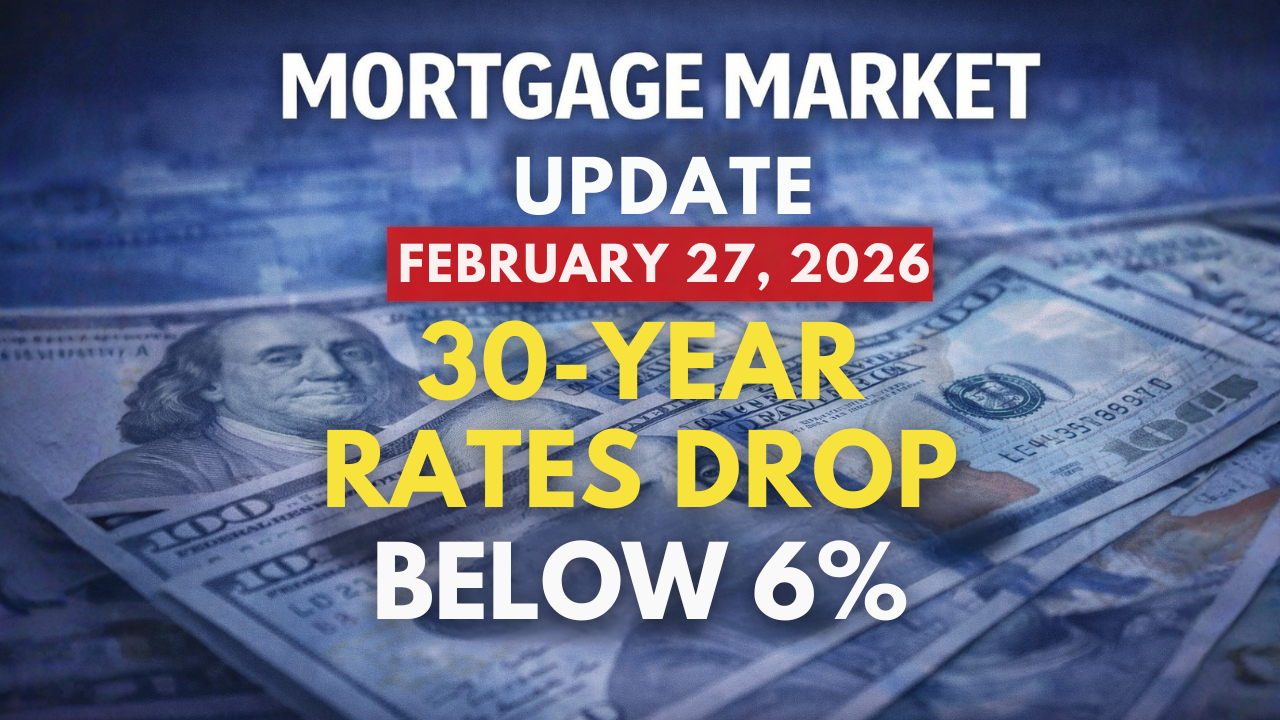Buying your first home is an exciting milestone, but it comes with a lot of questions. Of these questions, one of the most common is: “Do first-time homebuyers need mortgage insurance?” It is a requirement for many home loans, especially if your down payment is less than 20%. It can add to your monthly payment, but understanding when it’s required and how to potentially avoid it can help you make the best decision for your financial future.
Here’s what you’ll learn in this blog:
- When mortgage insurance is required for first-time homebuyers.
- Different types of mortgage insurance and their costs.
- How to avoid mortgage insurance and save on your repayment.
By the end of this blog, you’ll have a clear understanding of mortgage insurance and the best options for buying your first home without unexpected costs.
Understanding Mortgage Insurance
Mortgage insurance is a type of coverage that protects the lender in case the borrower defaults on their mortgage. For many new home buyers, mortgage insurance is a necessary cost if their down payment is less than 20% of the home’s purchase price. This extra cost is added to the monthly mortgage loan payment, but it can make homeownership possible when saving for a larger down payment isn’t feasible.
There are different types of mortgage insurance depending on the loan type:
- Private Mortgage Insurance (PMI): This is common for conventional loans. If the down payment is less than 20%, first-time buyers have to pay PMI.
- Mortgage Insurance Premium (MIP): For FHA loans, MIP is required regardless of the down payment amount. It’s an upfront fee plus an annual cost added to the mortgage.
- VA Loans: Veterans and active-duty service members are exempt from mortgage insurance. However, they may still need to pay a one-time funding fee.
Each type of mortgage insurance serves the same purpose: protecting the lender while helping you finance your new home.

Do First-Time Homebuyers Need Mortgage Insurance?
As a first-time homebuyer, understanding whether you need mortgage insurance largely depends on the type of loan you’re taking out and the size of your down payment.
- Conventional Loans: If you’re applying for a conventional loan and your down payment is less than 20%, you will likely have to pay for private mortgage insurance (PMI). This helps protect the lender in case you default on your loan.
- FHA Loans: With FHA loans, you are required to pay mortgage insurance premiums (MIP) no matter how small your down payment is. This is true for both upfront and annual premiums.
- VA Loans: If you qualify for a VA loan, you’re in luck! These loans do not have a mortgage insurance requirement, although they do come with a one-time funding fee that helps cover costs.
- USDA Loans: USDA loan programs, for new homeowners in rural or suburban areas, also require mortgage insurance, but the rates are lower compared to the cost of PMI.
While mortgage insurance may seem like an extra cost, it’s often necessary to help first-time home buyers secure a loan with a smaller down payment.
Costs of Mortgage Insurance
Understanding the costs of conventional home mortgage insurance is crucial for first-time buyers. While it may seem like an added expense, it allows a home purchase with a lower down payment. The cost of mortgage insurance depends on several factors, including your loan type, loan amount, and credit score.
- Private Mortgage Insurance (PMI): For conventional loans, PMI costs typically range from 0.5% to 1% of your loan amount annually. For example, if your loan is $200,000, PMI could cost between $1,000 and $2,000 per year. This amount is divided into your monthly mortgage payments.
- Mortgage Insurance Premium (MIP): With FHA loans, the upfront MIP is 1.75% of the loan amount, and the annual MIP can vary. If you have a 30-year FHA loan, the annual MIP could range from 0.45% to 1.05%, depending on your loan size and down payment.
- VA Loans: While these loans don’t require mortgage insurance, they do have a one-time payment requirement. This fee ranges from 1.4% to 3.6% of the loan amount, depending on your military service and whether it’s your first VA loan.
These costs can significantly impact your monthly mortgage payment, so it’s important to factor them into your home-buying budget.
Strategies to Avoid Mortgage Insurance
If you’re unwilling to pay for mortgage insurance, there are several strategies that can help you reduce or eliminate this cost altogether. Here are some options to consider:
- 20% Down Payment: One of the simplest ways to avoid mortgage insurance is by putting down at least 20% of the home price. With this down payment, you won’t need to pay for PMI on a conventional mortgage.
- Piggyback Loans: A piggyback loan is a second mortgage used to cover part of your down payment. For example, you might take out an 80/10/10 loan, where 80% is covered by a first mortgage, 10% by a second mortgage, and the final 10% is your down payment. This strategy allows you to avoid PMI by keeping your first home mortgage at or below 80% of the primary home value.
- Lender-Paid Mortgage Insurance (LPMI): In some cases, lenders offer to pay for your mortgage insurance in exchange for a higher interest rate. While this won’t eliminate the cost entirely, it can lower your monthly payment and be a good option if you plan to stay in your home for a shorter time.
- VA Loans: If you’re a veteran or active-duty service member, you can take advantage of this type of loan when purchasing a new home. It ensures you don’t have to pay mortgage insurance. While it requires you to pay a one-time funding fee, it’s often more affordable than ongoing mortgage insurance premiums.
- Refinance Your Mortgage: If you already have mortgage insurance, consider refinancing once you’ve built enough equity in your home (usually when you reach 20% equity). This is another way to avoid PMI or MIP and reduce your monthly home mortgage payment.
By considering these strategies, you can reduce or even avoid the added cost of mortgage insurance, making homeownership more affordable in the long run.

Pros and Cons of Mortgage Insurance
Mortgage insurance can be a useful tool for first-time home buyers, but it comes with both benefits and drawbacks. Here’s a breakdown of the pros and cons to help you understand how it fits into the process when you’re buying your first home:
Pros | Cons |
Allows for a Lower Down Payment: One of the main advantages of mortgage insurance is that it allows you to buy a home with a smaller down payment, typically less than 20%. This is especially helpful if you’re a first-time home buyer without the savings for a large down payment. | Increases Your Monthly Payment: The main drawback of mortgage insurance is that it adds to your monthly mortgage payment. This can make your home more expensive in the long run, as you’re paying both the loan principal and the cost of the insurance. |
Access to Homeownership Sooner: Without mortgage insurance, many first-time home buyers wouldn’t be able to purchase a home so quickly. It opens up the opportunity for homeownership even if you don’t have a large amount saved up. | Cost of Mortgage Insurance Can Be Significant: Whether it’s PMI, MIP, or other forms of insurance, the cost can add up. For example, with PMI, you could pay an additional $100 to $200 or more each month, depending on your loan amount and down payment. |
Improved Loan Approval Chances: Mortgage insurance reduces the lender’s risk, which means they might be more likely to approve your loan application when you’re buying a home, even if your credit score or down payment isn’t ideal. | Cannot Always Be Removed Immediately: Some types of mortgage insurance can stay with you for the life of the loan unless you refinance. This makes it harder to get rid of if the value of your home doesn’t increase as expected. |
While mortgage insurance can help you purchase a home sooner, it’s important to weigh these pros and cons before making a decision. If possible, consider ways to minimize or avoid it to keep your long-term homeownership costs lower.
Frequently Asked Questions (FAQs)
Can mortgage insurance be canceled?
Yes, you can cancel private mortgage insurance (PMI) once your loan balance reaches 80% of your home’s original value. For FHA loans, however, mortgage insurance premiums (MIP) may stay in place for the life of the loan unless you refinance.
Is mortgage insurance tax-deductible?
As of now, mortgage insurance premiums are not tax-deductible for most borrowers. However, there have been occasional changes to tax laws, so it’s worth consulting a tax professional to see if there are any available deductions.
Can I avoid mortgage insurance with a co-signer?
A co-signer may help you qualify for a mortgage, but it doesn’t eliminate the need for mortgage insurance if your down payment is still less than 20%. PMI or MIP is typically required based on the loan-to-value ratio.
Does mortgage insurance cover the borrower?
No, mortgage insurance protects the lender in case you default on your loan. It helps the lender recover their losses if you’re unable to continue paying your mortgage.
How can I remove mortgage insurance from my loan?
Once your home equity reaches 20%, you can request PMI cancellation for conventional loans. For FHA loans, refinancing might be necessary to remove MIP if you no longer want to pay it. Be sure to contact your lender when you’re close to meeting these milestones.
Conclusion
Understanding whether you need mortgage insurance as a first-time homebuyer is an important step in the home-buying process. While it can seem like an added cost, it plays a crucial role in helping you secure a home with a smaller down payment. It’s essential to evaluate your options, weigh the costs, and explore strategies like putting down 20% or using a VA or FHA loan to avoid mortgage insurance altogether.
By knowing when it’s required, how much it costs, and how to potentially eliminate it, you can make a more informed decision about your mortgage and overall financial plan.
If you’re ready to take the next step in buying your first home, Morgan Financial is here to help. As a trusted mortgage lender, we offer guidance and support every step of the way to ensure you understand your options and get the best deal on your home loan.
Contact us today at Morgan Financial to learn more about your mortgage options and start your home-buying journey with confidence!





